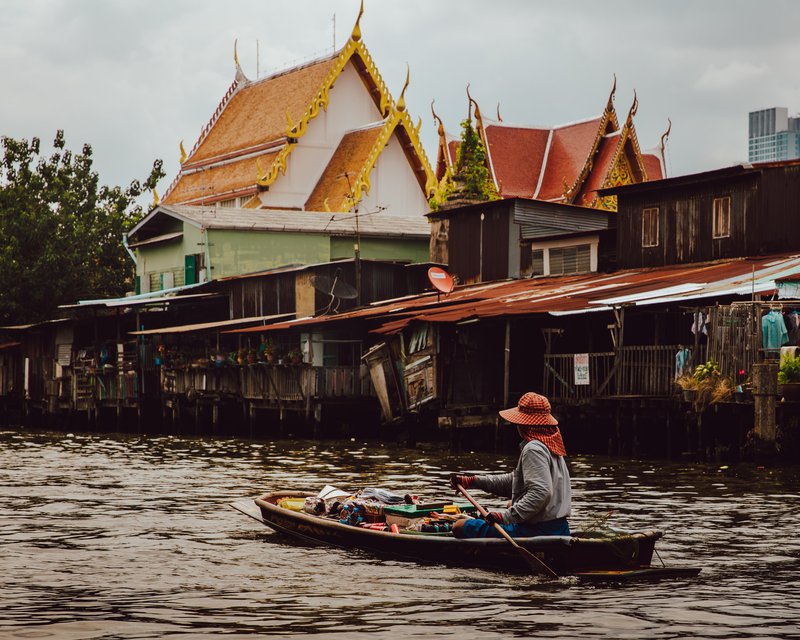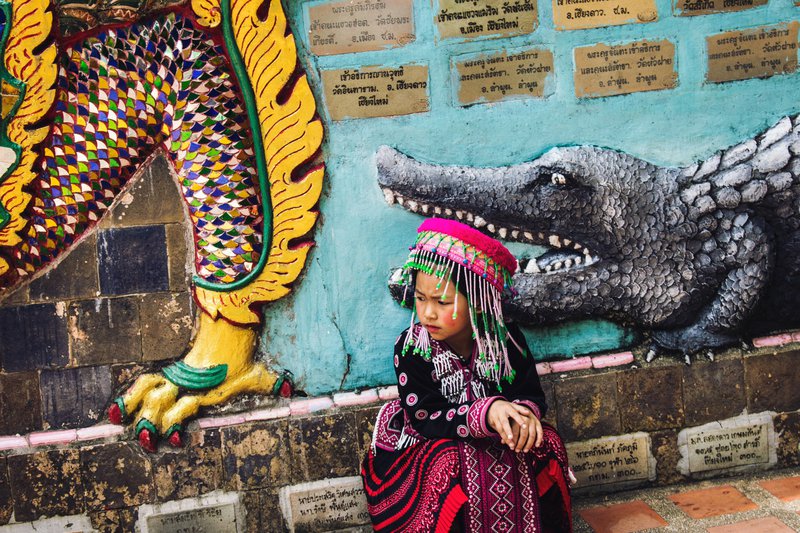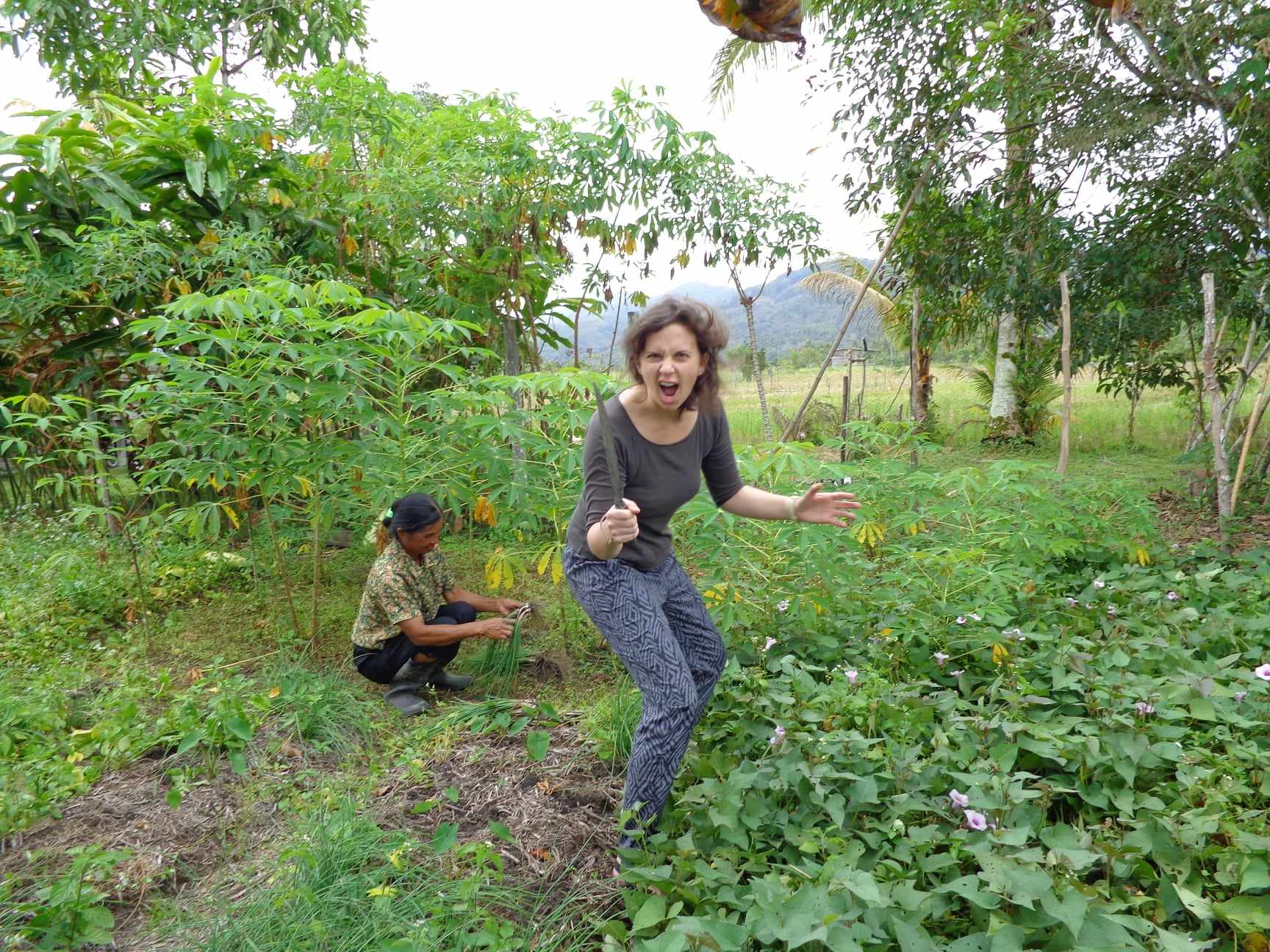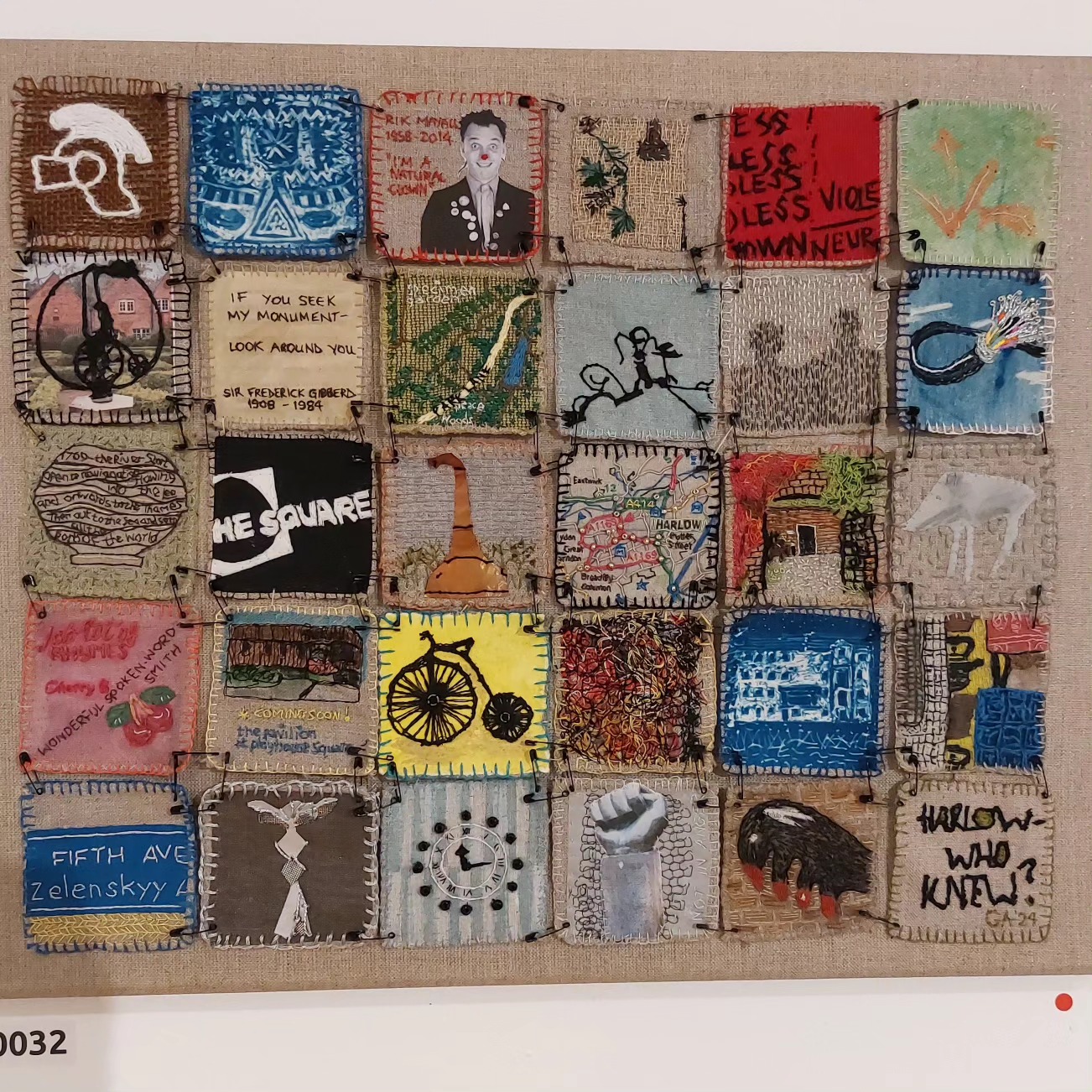
WHAT I LEARNED ON MY TRAVELS THROUGH THAILAND
7 June 2024When I booked my trip to Thailand, I knew I’d learn about Thai culture, but I had no idea what I learned would have such an impact on my lifestyle after the trip. The way Thai people live their lives not only taught me so much about priorities and gratitude, but showed how accurate the nickname Land of Smiles actually is.
GRATITUDE & APPRECIATION ARE ESSENTIAL FOR HAPPINESS
Thai people choose to be grateful - and in turn happy - even in far from perfect situations. Coming from Los Angeles, I’m no stranger to traffic and the frustration that usually comes with it. As bad as LA traffic is, you don’t know traffic until you’ve sat in a taxi in Bangkok that’s completely stopped for over an hour to get to a destination supposedly 15 minutes away. While sitting in this taxi, I was sure frustration would overtake the mood of the night. Our taxi driver all of a sudden said something we didn’t understand through his thick accent and started giggling and smiling uncontrollably. He continuously pointed outside at the lines of stopped cars and giggled and smiled at us, so excited that everyone in the car couldn’t help but laugh and smile as well, completely forgetting that we were stuck in non-moving traffic and late to our scheduled tour. The joy this man so clearly felt and so easily expressed just showed how easy it is to be grateful and joyful in even a frustrating situation. It made me realise how often people let small setbacks and annoyances alter moods and atmospheres. Every person I encountered in Thailand radiated joy and gratefulness for the little they often had.

IT’S IMPORTANT TO ACKNOWLEDGE THAT EVERYONE’S IN THE SAME BOAT
Bangkok’s bustling streets overflow with Thai men and women selling food from carts, all putting their own spin on the same dishes and street-snacks. Where you’d think there would be negative competition and potential rivalries, there was actually the kind acknowledgment that everyone simply had the same shared goal of supporting their families. I often even saw different food-cart owners trading food or buying from another person’s cart. This was shocking and inspiring, especially coming from the US where competition and rivalries ruin so many businesses and relationships.

ACCEPT THAT SOME THINGS ARE JUST OUT OF YOUR CONTROL, AND MOVE ON
Sitting on a long tail boat in the Bang Khu Wiang Floating Market outside of Bangkok, I saw numerous shopkeepers dripping in sweat, forced to sit in the sun as they attempt to sell as many items as possible. The heat seemed to have no effect on these people as they still laughed with each other and continuously smiled. Tourists in boats passed by and several times, I heard complaints from both adults and kids about their “misery” and discomfort from the heat. Throughout my whole trip, I saw Thai people accepting the conditions out of their control, like the weather or the pollution surrounding them, and lived their lives worrying about what they can control.
Whether it is the shared Buddhist mindset, or simply the Thai culture that drives it, people throughout Thailand are friendly, happy, and grateful to be living the lives they do, regardless of how much money they have or the tediousness of their jobs. This atmosphere was refreshing and inspiring, and the “Land of Smiles” was exactly that and more.
Adjusting to Life in Jakarta
As a Jesus follower, I know that my life is not my own. I’ve been saved by Jesus’ love for me and I have the life-long gift of drawing closer to Jesus in every chapter of my life. Well in this chapter, my spiritual journey had a strong emphasis on patience. Every time my husband and I left the house, our patience ‘muscle’ was put to the test. Catching public transportation via Grab (same concept as Uber) everyday was always an adventure… Despite giving our driver the correct address of our destination, our commute regularly involved our driver getting lost, taking the scenic route (which could extend our drive-time by an hour or more), and in some cases, the driver would ask us to use our own GPS and give him directions to our destination… uhhhh what?? Then throw in the mix of trying to find an English speaker at a store and learning to cross a busy street without having a heart attack and/or getting run over and you got yourself a very strong patience muscle!… Or perhaps a really tired one.
But one of the most frustrating parts of living in Asia was my health, or perhaps my lack of it. For the majority of my time in Indonesia, I battled with sickness. Jakarta is one of the most polluted cities in the world and my body just never seemed to fully adjust to it, which resulted in a chronic dry cough. Within the first couple months of moving, I also contracted a parasite which led to uncontrollable vomiting and an overnight stay at a local hospital. Thankfully, my body eventually seemed to adjust a bit, but I never felt 100% healthy.
Photo by Eko Herwantoro
At this point in my post, some of you might be thinking ‘Wow, what a nightmare!’ or ‘I just wanted to read something light and positive about an experience in a tropical location.’ Sorry to burst those bubbles out there. I’m a realist. There’s this stigma on different social platforms that world travelers are having the time of their lives and everything’s perfect. I love to travel, but the challenges of life don’t stop. I was stretched in every way imaginable during this move, but as I was stretched, I learned so much.
A Look Into the Lives of Indonesians
Earlier, I mentioned the many ‘adventures’ my husband and I had when we took ‘Grab’ for transportation… I’m sure some of you may have been thinking, ‘If the driver doesn’t know how to get to your destination or use GPS, then he shouldn’t be a driver!’ Oh trust me, we had that frustrating, bewildered conversation on multiple occasions. Then we slowly began to learn how incredibly challenging life is for people born on this side of the world.

Photo by Husniati Salma
The average Indonesian receives limited education, meaning simple skills such as knowing how to read and follow a map is not something these individuals are taught in their lifetime. On top of that, a number of ‘Grab’ drivers are from the poor, rural parts of Indonesia and they come to the capital of Jakarta with hopes that they’ll provide enough money to send back to their families. We often saw pillows crammed in the trunk space of Grab vehicles, which immediately let us know that this vehicle is not just this person’s means of income, it’s their home. So when we found out that these drivers were not only unfamiliar with the city of Jakarta, but were also robbed of basic education and training as a child, our stomachs dropped. Numerous experiences like these opened my eyes to the stark contrast of my life of privilege and the struggle that millions of people go through every day just to survive.
Despite such disadvantages and struggles, many Indonesians speak multiple languages/dialects and have an understanding and respect for other people groups represented in their communities. Wow, that’s something that we could learn in the United States, huh? As we began to make friends with locals and other expats, one topic that would find its way into our conversations was, ‘So how many languages do you speak?’ Our friends would begin to rattle off with pride all of the languages they spoke fluently and then they would look at me for a response. I’m sure some of you out there have had similar experiences where you reluctantly and embarrassingly said, ‘Uhh just English.’
Reflecting on My Privileges as an American
And yet again, I realized just how privileged I am. A lot of Americans have taken a foreign language class in school. I did as well! I took Hawaiian, Japanese, and Vietnamese. And like many of us out there, we can hardly remember anything past ‘Hello’ and ‘Can I go to the bathroom.’ Why? Because Americans don’t need to learn a second language. English is spoken globally and, in a lot of cases, a Westerner can get by simply by using broken English with non-English speakers. What an incredible advantage we have! But, ironically, I also see it as a disadvantage. America’s monoculturalism pretty much says, ‘It’s all about us. We’re at the center of the universe, so people should be learning and imitating us.’ Such a mindset fails to value, respect, and form relationships with people who are different from us. I’m incredibly grateful for the blessings and advantages of being an American, but I don’t want to use such advantages to make myself feel superior. I want to use them to help those who have been stripped of such rights. This desire in me would continue to grow as Indonesia faced this global pandemic, COVID-19.
Experiencing a Pandemic in a Developing Country
When my husband and I agreed to move to Jakarta, we, to some degree, understood the challenges we would face with cultural adjustments, etc. But we never thought that we would face a heartbreaking, worldwide, almost apocalyptic, outbreak. We quickly found out from our trusted friends that receiving medical care at a local hospital in Jakarta could be more dangerous than simply battling a sickness at home with basic remedies. This realization made us feel uneasy even before the COVID-19 outbreak. Once the news about COVID-19 hit, we anxiously watched the news as we heard that country after country in Asia had confirmed cases. We knew it was a matter of time before we heard the virus was now in Indonesia. Week after week, we waited to hear about confirmed cases, but nothing. I felt like the minion in Despicable me--whaaaaat?! How can this be? Every country surrounding Indonesia had COVID, except us. In fact, Indonesia was one of the top 10 destinations for passengers who flew out of Wuhan. Then it became very evident–the government was hiding the truth.

Photo by Max Bender
Weeks later after the government admitted there were confirmed COVID cases in Indonesia, the panic began. The idea of traveling back to the US and risk exposure was off the table. So we grabbed extra supplies from the store in case we were stuck at home for an extended amount of time. After seeing the panic and fights in grocery stores in the US, my husband and I went into the store with the mindset that we were in the ‘Walking Dead.’ But to our surprise, there was no panic. In fact, the stores were quiet, completely stocked, and not busy at all. What was going on?

Photo by Erik Mclean
27 million Indonesias live on less than $0.75 USD/day. It wasn’t a matter of Indonesians not wanting to buy supplies for their families, they simply couldn’t afford it. They barely make enough money to feed their families everyday, let alone stock up on a few weeks of supplies. This situation brought such a mix of emotions–guilt, gratitude, and confusion.
After WHO pleaded with the president of Indonesia to take the necessary precautions to protect his people, Indonesia went into lockdown like the rest of the world. For several months, my husband and I lived in isolation, worried about our health, our future, and how things would escalate in Indonesia. As we regularly watched the news and saw other major cities take major precautions, it showed us how seriously the pandemic should be taken. Then we looked outside our window and you would never be able to tell that Jakarta was in ‘lockdown’ with all the traffic on the roads still. It made us scared and angry–why isn’t anyone taking this seriously here? Then we realized, they don’t have a choice. For those living in poverty, there is no back-up plan, there is no savings. You tell me what you would do–go to work and provide food for the day or quit your job and starve to death?

Photo by Voicu Horatiu
As we used ‘Grab’ regularly, on occasion we would get paired with a driver who lived down the street from us. This man would often talk to us about COVID and his concern for his country. He would ask us about the state of our country and he would then compare the US and Indonesia and how they’re responding differently to the pandemic. And then this man said something that I’ll never forget–the difference between his country and mine is that my country believes in human rights and has a safety net for its people.

Photo by Rohiim Ariful
Growing in Gratitude
To be born in a country with such freedoms and opportunities is an incredible gift from God (Yes, the US is not perfect. It still has a long way to go.) But it’s not something that we just keep to ourselves and enjoy. What I’ve experienced in Indonesia this past year is but a fraction of the heartbreaking circumstances that millions of people endure every day. It is our ethical duty to help those who are incapable of helping themselves. Proverbs 3:27, “Do not withhold good from those who deserve it when it’s in YOUR power to help them.”
Looking over my journey this past year, it’s hard to fully appreciate all that I’ve learned and experienced during my time here in Asia. I’ve been put to the test physically, spiritually, emotionally, and relationally. But there’s one truth in life that we all have to accept–growth is always outside our comfort zone. During this time, God has been there for us and guided us in so many ways. Psalm 139:9 comes to mind as I reflect on my adventure this past year–”If I ride the wings of the morning, if I dwell by the farthest oceans, even there your hand will guide me, and your strength will support me.” What a deep sense of peace and security to know that God is always there with me, no matter my circumstances or location.


